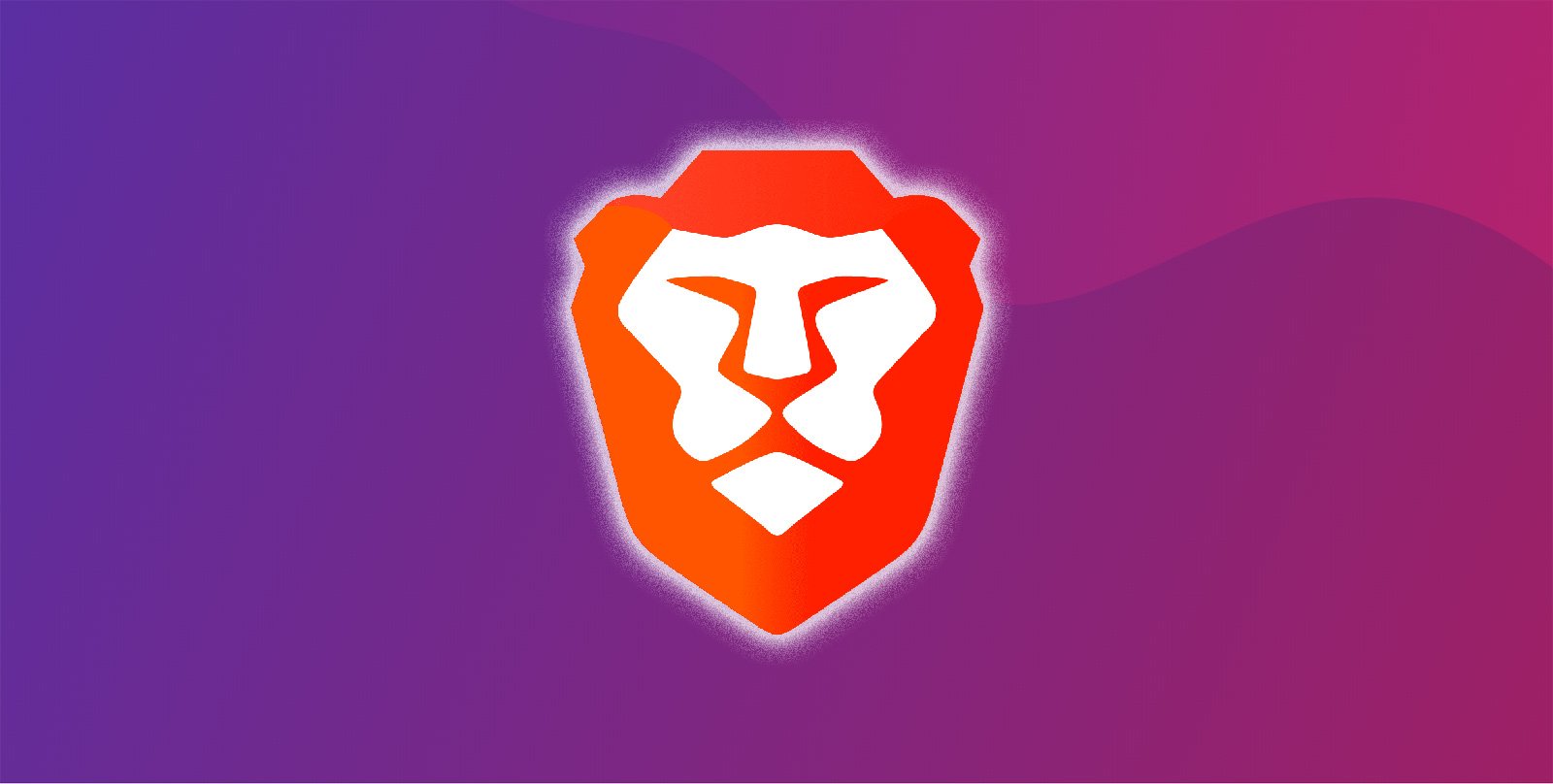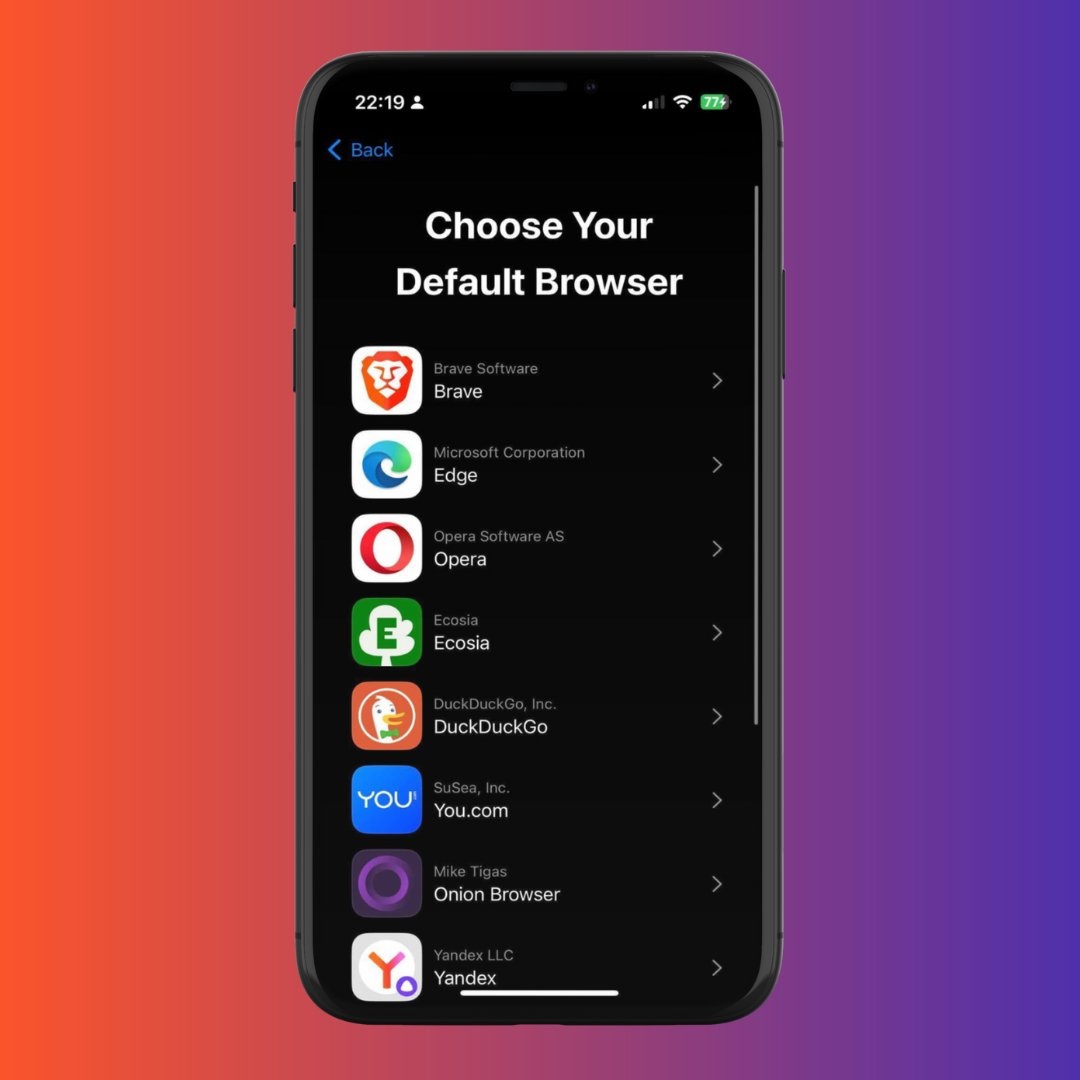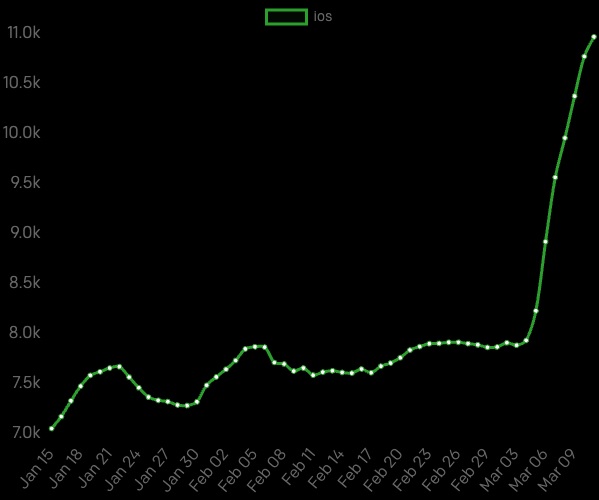
Brave has seen a sharp increase in users installing its privacy-focused Brave Browser on iPhones after Apple introduced changes to adhere to the new European Digital Markets Act.
To comply with the Digital Markets Act (DMA), Apple introduced a new feature in iOS 17.4 that asks EU users to pick a default web browser from a list that includes Brave, among other options.
This new screen will prompt users to select a default browser from browsers that are popular in their country when they open Safari for the first time after installing the update.

Source: Brave
For a browser to be listed as a choice, it must meet specific requirements, like having over 5,000 downloads in the EU App Store the year before. Also, if a company offers several browser apps, only its most downloaded app can appear on the list.
The choice screen will show up to 11 of the most downloaded browsers from the previous year in a randomized order, including Safari.
Apple plans to update this list yearly based on the most recent metrics.
Brave pointed out that, after the update, there was a noticeable jump in the number of people installing Brave on their iOS devices in the EU.
"Why did Apple and Google make it hard to switch default browsers for so many years? Because it's a powerful way to block competitors," tweeted Brave.
"Just look at what happened to Brave installs on iPhone in the EU when Apple rolled out a new default browser choice screen on March 6th:"

Source: Brave
On X, Brave shared an image of a line graph showing the number of Brave browser installations on iOS from mid-January to early March.
The daily installs fluctuate around 7,500 to 10,000 for most of the period. However, on March 6th, after the iOS update was released, there was a sharp increase in installations, soaring to just over 11,000.
This spike in installations coincides with Apple's introduction of a new choice screen for default browsers on iOS devices in the EU.
Brave claims that this significant increase in users choosing Brave as their default browser is due to the new feature introduced by Apple to comply with the EU DMA.
"Monopoly defenders argue that the monopolies simply offer better products. But as you can see, when consumers get a clear choice of iOS browsers, they're choosing alternatives to Safari," noted in their Twitter thread.
"Maybe that's why Google still hasn't implemented a browser choice screen on Android."
In a follow-up post, Brave asked Google to give users an easy choice to change the default browser.









Comments
thatirish - 10 months ago
Been using Brave for a couple of years and am happy with it. Only problem thus far is when you migrate bookmarks and passwords from Edge or Firefox the passwords don't migrate. Other than that it's a great alternative.
GT500 - 10 months ago
Vivaldi for iOS is pretty new, so I wonder if it has enough installs in 2023 to make it on the list.